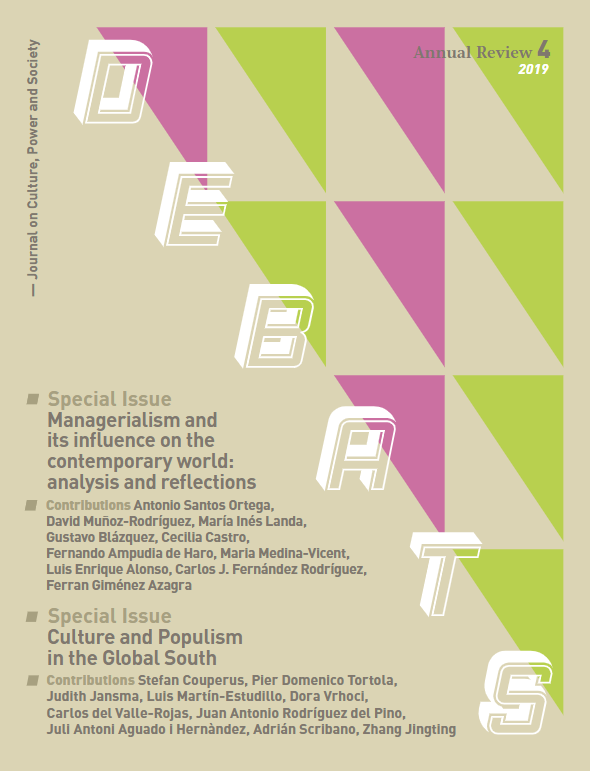Right-wing populism’s (ab)use of the past in Italy and the Netherlands
DOI:
https://doi.org/10.28939/iam.debats-en.2019-9Resumen
Historical analysis is increasingly used as a tool in the study of present-day populism in Europe. The past is often explored as a source of analogies through which to examine today’s populism, and at other times in search of causal mechanisms to explain the current populist wave. In this paper we focus on a third kind of link between populism and the past, namely the ways populist movements and leaders use and abuse history and historical memory in their quest for mass support. This angle on the populism/history nexus can yield deep insight into the ideological make-up of these movements and their voters, and populism’s discursive dynamics and strategies.
Focusing on contemporary right-wing populism and its approach to the dark past of European countries, the paper conducts an exploratory analysis that posits three ways in which the past is (ab)used by populists: (a) the positive reassessment of dark history; (b) the recourse to fake history; (c) the evocation and subsequent denial of links with the dark past. In examining each, we use examples taken from the cases of Italy and The Netherlands to check the plausibility of our categories across different national cases.
Descargas
Descargas
Publicado
Cómo citar
Número
Sección
Licencia
Sin perjuicio de lo dispuesto en el artículo 52 de la Ley 22/1987 de 11 de noviembre de Propiedad Intelectual, BOE del 17 de noviembre de 1987, y conforme al mismo, los autores o autoras ceden a título gratuito sus derechos de edición, publicación, distribución y venta sobre el artículo, para que sea publicado en Debats. Revista de cultura, poder y sociedad.
Debats. Revista de cultura, poder y sociedad se publica bajo el sistema de licencias Creative Commons según la modalidad «Reconocimiento - NoComercial (by-nc): Se permite la generación de obras derivadas siempre que no se haga un uso comercial. Tampoco se puede utilizar la obra original con finalidades comerciales».
Así, cuando el autor o autora envía su colaboración, acepta explícitamente esta cesión de derechos de edición y de publicación. Igualmente autoriza a Debats. Revista de cultura, poder y sociedad, la inclusión de su trabajo en un fascículo de la revista para que se pueda distribuir y vender.











